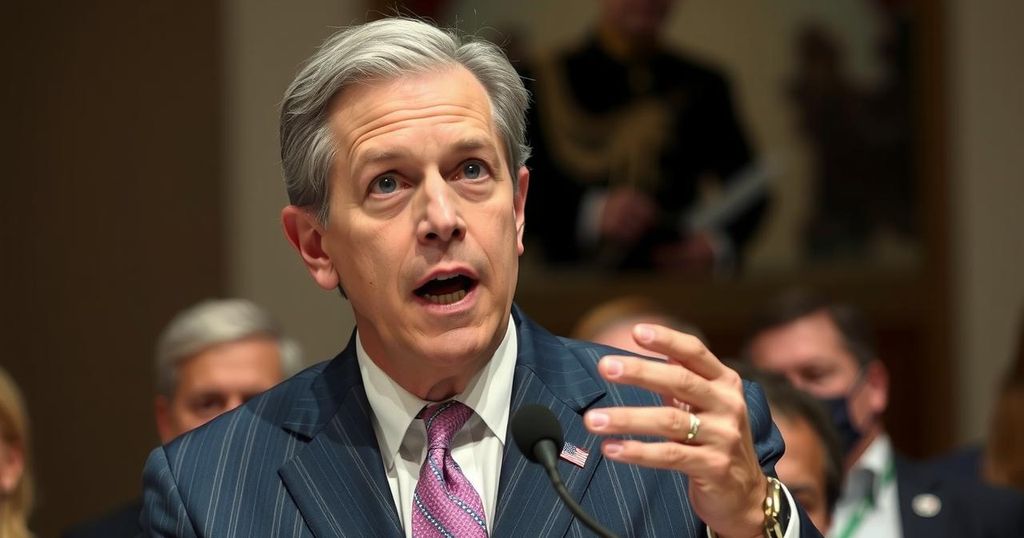Blinken Testifies on Afghanistan Withdrawal Amidst GOP Criticism

Secretary of State Antony Blinken faced Congress regarding the controversial U.S. withdrawal from Afghanistan, which has been criticized as a catastrophic failure of foreign policy. He defended the Biden Administration’s actions by arguing that they were bound by a withdrawal agreement made by the Trump Administration, expressing regret for the implications of the withdrawal while acknowledging protests during his testimony.
Secretary of State Antony Blinken faced significant scrutiny during his recent testimony before the House Foreign Affairs Committee regarding the U.S. withdrawal from Afghanistan. Texas Republican Representative Michael McCaul denounced the event as a pivotal moment marking a failure in U.S. foreign policy which, he stated, “lit the world on fire.” In his opening remarks, McCaul urged Blinken to take responsibility for what he termed the disastrous withdrawal.
Blinken began his testimony by extending apologies to the families of U.S. servicemen who lost their lives during the withdrawal. His address was frequently interrupted by protesters in the audience voicing their outrage with shouts of “genocide.” In response to the criticisms, Blinken defended the Biden Administration’s actions, highlighting that the withdrawal agreement established by the Trump Administration left him with no viable options.
He emphasized that continuing the conflict was not a feasible path, arguing that President Biden’s choices were essentially between ending the war or escalating it, stating, “Had he not followed through on his predecessor’s commitment, attacks on our forces and allies would have resumed.”
Blinken’s testimony follows a critical report released by House Republicans, which assessed the withdrawal’s failures, placing the blame squarely on the Biden Administration while minimizing Trump’s role in the events leading up to it. This report illuminated the last chaotic moments of America’s involvement in Afghanistan, which culminated in a hasty exit on August 30, 2021, leaving many at-risk Afghans and U.S. citizens behind amidst the Taliban’s resurgence.
Investigations have suggested that the failures were not confined to one administration but represented a systemic issue that spanned the tenures of four presidents, with both Biden and Trump held to share significant culpability.
The topic of the U.S. withdrawal from Afghanistan represents a critical and controversial chapter in recent American foreign policy. Following the lengthy military engagement in Afghanistan, the chaotic exit of U.S. forces in August 2021 under President Biden has prompted extensive debate and investigation among both political factions. Despite a withdrawal agreement brokered by former President Trump with the Taliban, the subsequent events have led to a considerable humanitarian crisis and raised serious questions about the planning and execution of the exit strategy.
In conclusion, Secretary Blinken’s testimony illuminated the contentious and multifaceted narratives surrounding the U.S. withdrawal from Afghanistan. As pressures mount from political critics, the complexities of responsibility and accountability continue to be debated. While the Biden Administration stands by its decision amidst the constraints of prior commitments, the lasting ramifications of the withdrawal remain a pivotal issue in American politics and foreign relations.
Original Source: www.news-herald.com








